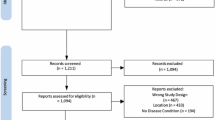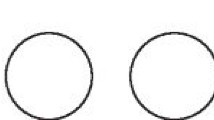Key Points
-
Examines the ethical basis of community health provision in the early sixteenth century through descriptions in Thomas More's Utopia.
-
Compares this ethical basis with the reality of More's Ordinances of 1530.
-
Provides a paragraph by paragraph comparison between Utopia and the Act of 1540.
-
Identifies a 'Morean' origin for the separation, for public health reasons, of tooth-drawing from Surgery in the Act of 1540.
-
Looks briefly at the philosophical environment created by the Italian Renaissance in English public life.
-
Shows More's attitude to women in medicine.
Abstract
This essay places the early modern origins of the ethico-legal structure of medicine, in which eventually by exclusion or inclusion, dental activity shared, in the Humanist environment of the Italian Renaissance as it was imported into England in the first years of the sixteenth century. There were two linked stages to this, the first supported by the genius of Thomas Linacre (1460–1524), and the second by the administrative ability of Sir Thomas More (1478–1535). This paper concentrates on the evidence for the intellectual basis of More's medical legislation, and that which was made shortly after his death.
Similar content being viewed by others
Log in or create a free account to read this content
Gain free access to this article, as well as selected content from this journal and more on nature.com
or
References
3 Henry VIII.c.11 (1511) An Act for the Appointing of Physicians and Surgeons.
Johnson JN . The life of Thomas Linacre, doctor in medicine, physician to Henry VIII, the tutor and friend of Sir Thomas More, and the Founder of the College of Physicians in London etc. London: Edward Lumley, 1835.
Bishop M, Gelbier S, Gibbons D . Ethics – the early division of oral health care responsibilities by Act of Parliament. Br Dent J 2002; 192: 51–53.
Routh EMG . Sir Thomas More and his friends. 1477–1535. London: Oxford University Press. 1934. p86.
More to Erasmus. In Stapleton, Tres Thomae 1588. pp221–222. Routh, op. cit. p143.
Cavendish G . The life of Master Thomas Wolsey Archbishop of Yorke and Cardinall. written by George Cavendish his Gentleman Usher. Singer S W First full edn from the manuscripts. Chiswick: Harding, Triphook, and Lepard, London. 1825. Vol.I. p.222
More to Margaret Roper. In: Stapleton, Tres Thomae 1588. pp144–145. (Margaret More married Roper in 1521.) Routh op. cit. p132.
Turner P . Translator More Sir T. Utopia Penguin Books Limited text. London: The Folio Society. 1965. Reproduced by permission of Penguin Books Ltd. Lupton JH. The Utopia of Thomas More, in Latin and the English of Robynson's Translation of 1551. Oxford: Oxford University Press, 1895 p285.
Letters and papers for the reign of Henry VIII, i, no. 4701, 1 Feb 1514.
Routh op. cit. p40.
see eg Moynahan B If God spare my life. William Tyndale, the English Bible and Sir Thomas More – a story of martyrdom and betrayal. London: Little Brown, 2002.
32 Henry VIII.c.42. (24 July 1540) An Act concernyng Barbours and Surgeons to be of one companie.
The British Library C.65.e.i Paris. Gilles de Gourmont 1517.
The British Library. Roy 2 A XVI. p3.
More Sir T. Utopia Trans Paul Turner. Penguin Books Limited text. London: The Folio Society, 1965. Reproduced by permission of Penguin Books Ltd.
Lupton JH . The Utopia of Thomas More in Latin and the English of Robynson's Translation of 1551. Oxford: Oxford University Press, 1895.
Ackroyd P . The Life of Thomas More. London: Chatto & Windus, 1998.
Baker-Smith D . More's Utopia. London: Unwin Critical Library; Harper Collins, 1991.
Turner op. cit. p92-99 Lupton op. cit. p187–220.
Young S . Annals of the Barber Surgeons. Appendix C. London: Blades East & Blades, 1890.
5 Henry VIII.c.6 (1513) An Act concerning Surgeons to be discharged of Quests and other Things.
Young S . Annals of the Barber Surgeons. Appendix B. p579.
Copeman WSC . Doctors and Disease in Tudor Times. London: Dawson's of Pall Mall. 1960.
Acknowledgements
The authors are very grateful for the assistance of Michelle Gunning of the Library at the Royal College of Surgeons. Dr William Jenkins provided information on the Holbein family from Switzerland, Mrs Martin Hale translated from the German. Penguin Books very kindly gave permission for the Turner quotations, and the British Library took the photographs and gave permission for use of the illustrations. Christopher Liddle, late of the College of Law, supplied legal material.
Author information
Authors and Affiliations
Additional information
Refereed Paper
Rights and permissions
About this article
Cite this article
Bishop, M., Gelbier, S. Ethics and Utopia: public health theory and practice in the sixteenth century An essay comparing the Henrician Medical Act of 1540 and More's 1530 Ordinances, with Thomas More's novel 'Utopia' of 1516. Br Dent J 195, 251–255 (2003). https://doi.org/10.1038/sj.bdj.4810471
Received:
Accepted:
Published:
Issue date:
DOI: https://doi.org/10.1038/sj.bdj.4810471
This article is cited by
-
'Dentists' and the establishment of the Anglo-American dental profession in the eighteenth century: part 1. The need for a name and an identity
British Dental Journal (2014)
-
Ambrosius Holbein's memento mori map for Sir Thomas More's Utopia. The meanings of a masterpiece of early sixteenth century graphic art
British Dental Journal (2005)



